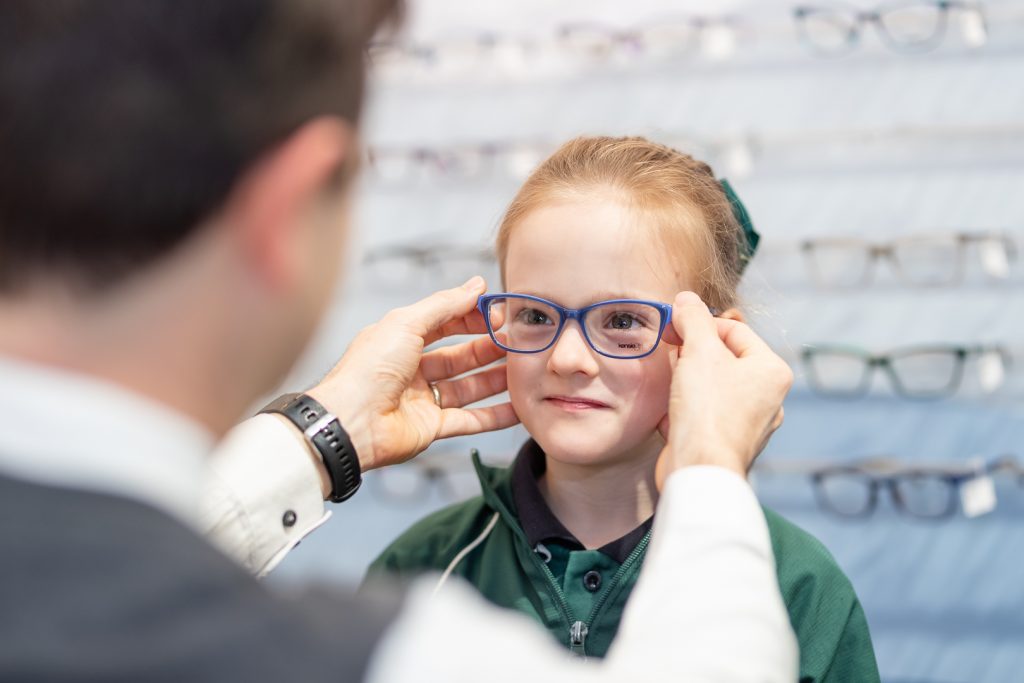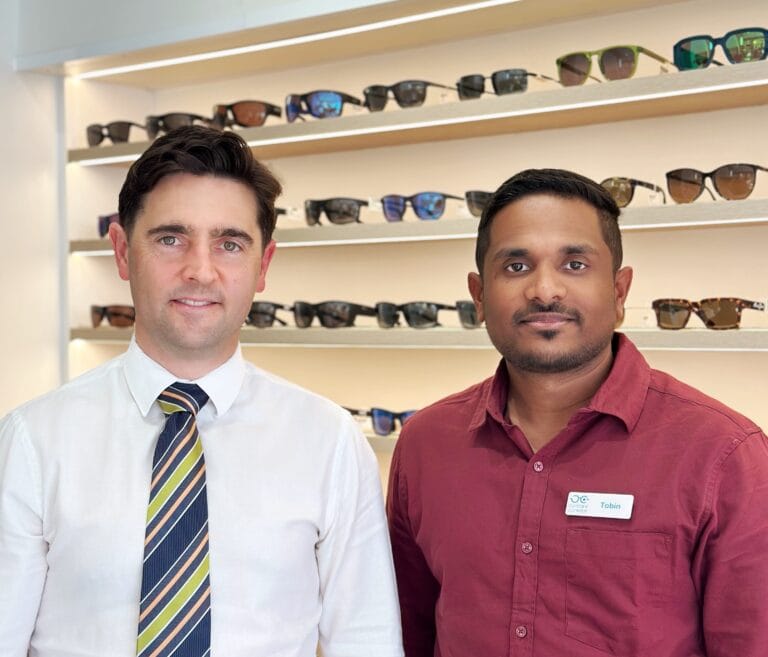
Protecting Your Child’s Future Vision: Understanding Myopia Control
What is Myopia (Nearsightedness)?
Myopia, commonly known as nearsightedness, is a very common vision condition where distant objects appear blurry, while close objects are seen clearly. It occurs when the eye grows too long from front to back, or the cornea (the front surface of the eye) is too curved, causing light to focus in front of the retina instead of directly on it.
Traditionally, myopia has been corrected with glasses or standard contact lenses. However, these only correct the blurry vision; they don’t stop the eye from continuing to grow longer. Myopia often starts in childhood and can progressively worsen, especially during school years.
Why is Myopia Control Important?
Beyond just needing stronger glasses, higher levels of myopia significantly increase the risk of serious eye conditions later in life. These include:
- Retinal Detachment: A sight-threatening condition where the retina pulls away from its normal position.
- Glaucoma: A disease that damages the optic nerve, often due to high eye pressure, leading to vision loss.
- Myopic Macular Degeneration: A severe condition affecting central vision in highly myopic eyes.
- Cataracts: Clouding of the eye’s natural lens, occurring earlier in life with high myopia.
Myopia control aims to slow down or even halt the progression of myopia in children and teenagers. By managing how the eye grows, we can reduce the risk of these future eye health complications and ensure your child has the best possible vision for life.
What Are the Myopia Control Options?
At our Dalby practice, our optometrists are trained in the latest evidence-based myopia control strategies. After a thorough assessment, we will discuss the best options for your child, which may include:
- Orthokeratology (Ortho-K) Lenses: Special rigid contact lenses worn only overnight. They gently reshape the cornea while your child sleeps, allowing for clear vision during the day without glasses or contacts. Studies show great success in slowing myopia progression.
- MiSight 1 Day Contact Lenses: The world’s first and only FDA-approved soft contact lens for myopia control. These daily disposable lenses are specifically designed with unique zones to correct vision and slow eye elongation.
- Low-Dose Atropine Eye Drops: Used nightly, these diluted eye drops can effectively slow down myopia progression. They are often used in conjunction with other methods or as a primary treatment.
- Spectacle Lenses (e.g., DIMS or HAL): Newer spectacle lens designs incorporating special technology to send a “stop growth” signal to the peripheral retina, helping to slow down myopia progression.
- Lifestyle Recommendations: Encouraging increased outdoor time (at least 2 hours daily) and promoting healthy screen habits can also play a role in managing myopia progression.
What to Expect: Your Child’s Myopia Control Journey
Your child’s myopia control journey will begin with a comprehensive eye examination and a detailed discussion about their medical history, lifestyle, and visual needs. Our optometrist will perform specialized tests to determine the most suitable myopia control strategy.
Once a treatment plan is chosen, regular follow-up appointments will be scheduled to monitor your child’s eye growth, vision, and overall eye health. Consistency with the chosen treatment and adherence to our recommendations are key to successful myopia control.
Our dedicated team in Dalby and Chinchilla is here to partner with you in protecting your child’s long-term eye health and vision. Contact us today to learn more about myopia control and schedule a consultation!

Meet Our Optometrists – Tom Roger & Tobin Eapen
The Eyecare Eyewear Optometry Team has been trained to provided you with comprehensive, personalised advice regarding your current and future visual needs. The combination of years of experience and an accomplished, professional optical dispensing team means that you will receive the highest level in vision care and ocular disease management.